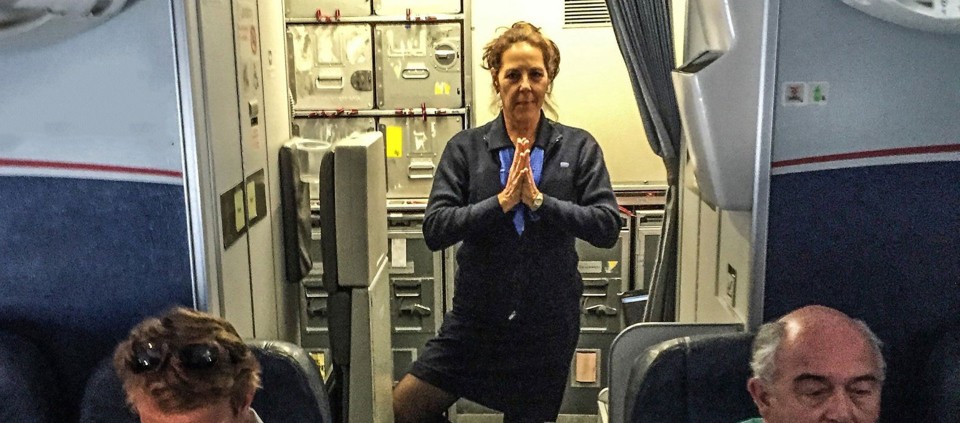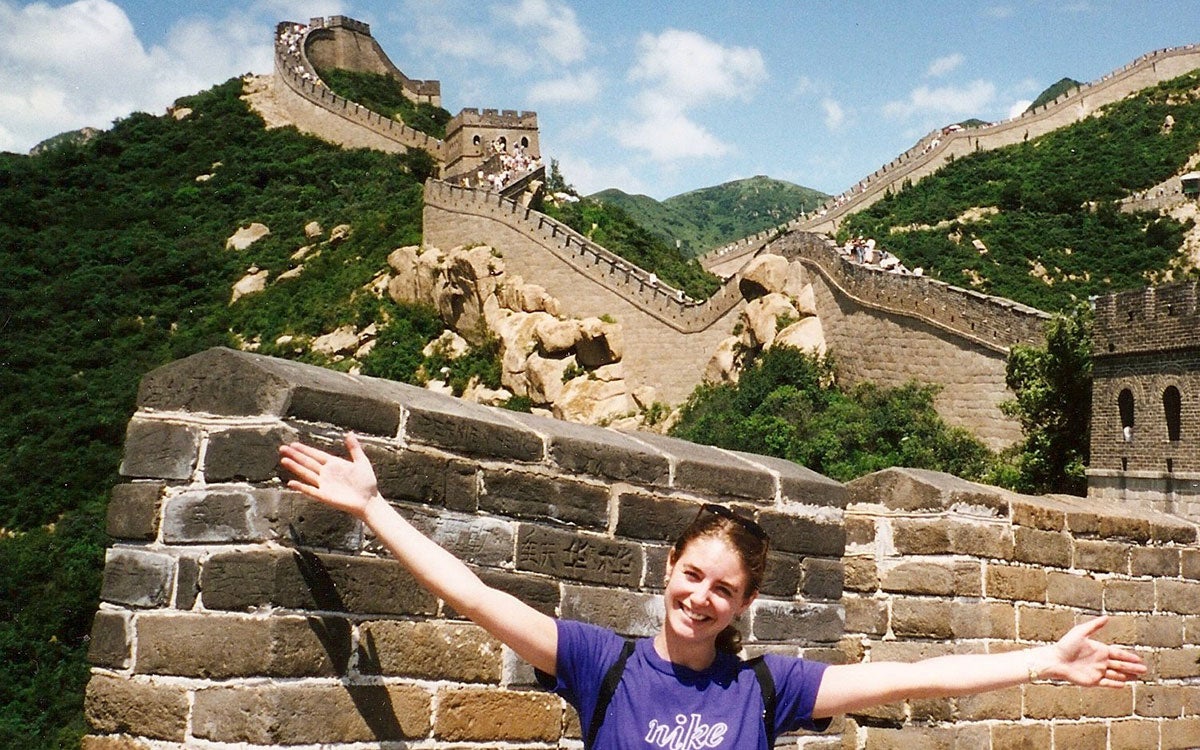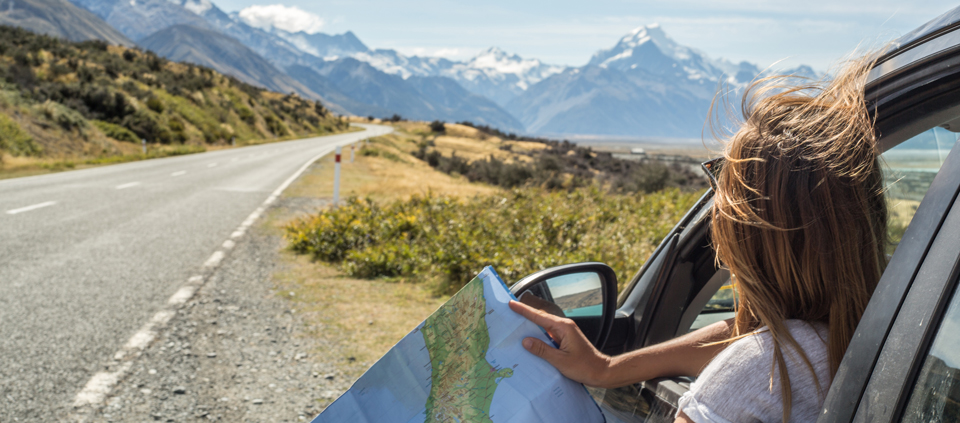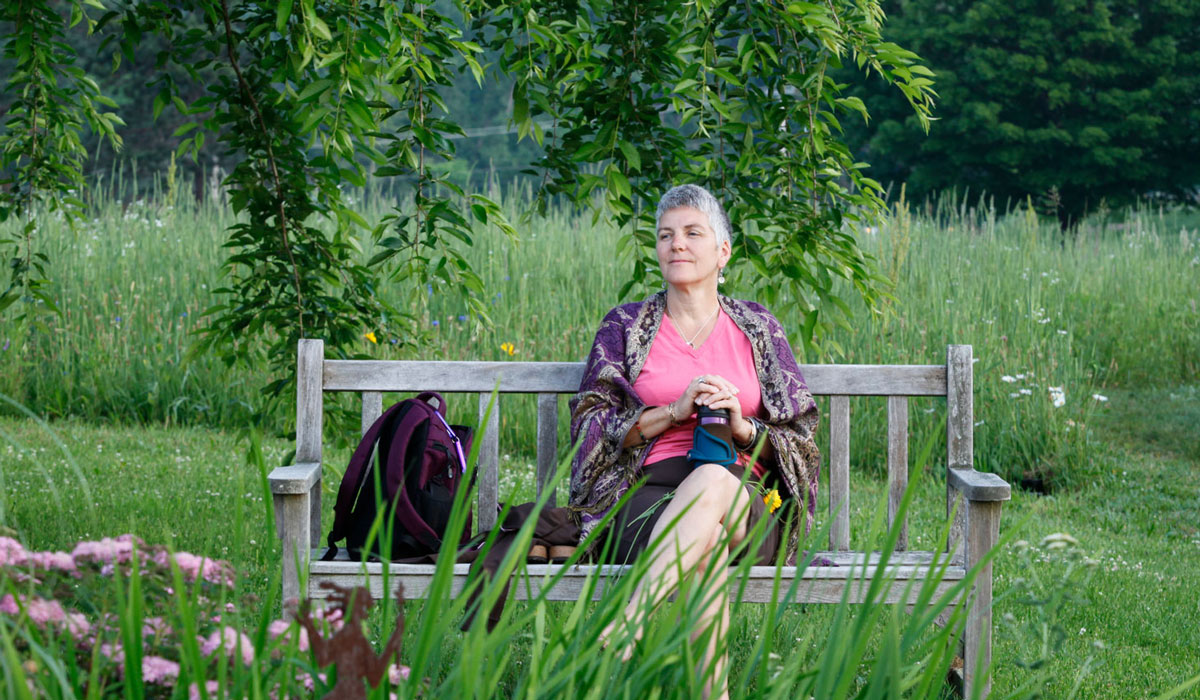How to Stay Grounded, Even in Flight: Mindful Remedies for Travel Anxiety

Photo by Robert Sturman
In my 20s, I loved to travel. I enjoyed the busyness of train stations and airports, the anonymity of crowds, the sensation of takeoff. I craved forward motion—anything that distracted from my unhealthy lifestyle and relationship choices, or where I was heading in a broader sense. My work brought me to the United Kingdom, the United Arab Emirates, China, Japan, and Thailand, and on a two-year stint on a cruise ship. I didn’t feel seasick. I felt unmoored, and that was just fine.
Fast-forward 20 years, and the opposite is true. A trip to the grocery store can seem like a wild excursion. I find I’m queasy on planes, where I struggle with sensory overload—the disparate noises, smells, and temperatures. Travel triggers new phobias: too many people, too many germs, too much movement when I want to be still, or too much stillness when I long to move. I control so little, and this is maddening.
On a ferry ride on the Irish Sea a few years ago, I discovered that my cruise ship cool was gone. A video clip of this ride, complete with high swells, ends with one passenger asking the Captain, “Can you tell us if this is normal?” My thoughts in that moment were not as polite.
Why do I now dread sensations I once enjoyed? Is it simply age? Or is it because I now feel more grounded in my life and I prefer to stay that way?
Writer and artist Laura Didyk ponders this question—and the roots of her travel anxiety—in her essay, “There’s Weather Up Ahead.” “Logic says that since I’ve grown happier in my life in general, more surrendered, less worry-obsessed, that this positive change would seep into everything and help me take difficult situations in stride,” she writes. “But as I’ve come to care more deeply about being alive, I have become proportionately more afraid of death. Now that I’m living a life I love, I do not want to lose it. I want it be long and full and good.”
This makes sense to me. And, like Laura, I don’t want travel anxiety to interfere with my ability to see places.
“We can try to step back into a larger field of awareness,” says yoga therapist Amy Weintraub, author of Yoga for Depression and Yoga Skills for Therapists and founder of LifeForce Yoga. “From this perspective, we know that we’re so much more than the anxious part who’s afraid to fly or to travel to places we’ve not been before.”
What allows us to step back and consider this broader perspective? I asked fellow travelers for their advice.
Preparing to Go
“I say a gratitude prayer for my upcoming adventure.”
“I try to remember that I control nothing.”
Book yourself an aisle seat if you are a restless type, recommends a former flight attendant. “Or a window seat if you don’t want to be disturbed.” Begin a meditation practice well in advance of travel, she suggests, which will make in-flight meditation more intuitive.
“Give yourself plenty of time to get to where you need to be,” another suggests, “and have a general idea of what you’re going to do once you get there. Hold on very loosely to your itinerary. A new plan isn’t necessarily a bad plan. It may even be better.”
 The author at the Great Wall of China
The author at the Great Wall of China
“Make lists,” several travelers say. (A jumbo bottle of hand sanitizer is at the top of mine.) Lists can help me, but they can also exacerbate pre-travel nerves. If I account for every possible scenario, I can spiral into worst-case options. I add “bee-sting kit,” though I’m not allergic. What if someone else is?
“Remember that they probably have everything you might forget to pack available for sale at your destination,” says one traveler. Really, everything?
“Stay home,” one kindred soul suggests.
'What If' Versus 'What Is'
Travel anxiety stirs up thoughts of “what if,” says Sherianna Boyle, a psychology professor and author of Emotional Detox for Anxiety. “Try to reframe ‘what if’s’ into ‘what is.’ By doing so, you bring yourself back from the edge.”
One “what is” I like to repeat: I’m surrounded by people who can help me. This mantra is courtesy of my trusted travel companion, my husband, who has toured for years as a musician by bus, plane, and automobile.
Friends offer other ways to prevent the "what-if" spiral: carrying calming essential oils, avoiding caffeine and alcohol, bringing along homeopathic remedies and healthy snacks, using guided meditation apps. Diversions can help: books, music, a journal, comfort TV, even work projects. During my rough ferry ride, it was humor that broke me out of my panic, as members of our group launched into song (“I Will Survive,” followed by “Michael Row the Boat Ashore”).
An Opportunity for Reflection
We can also use travel as an opportunity for greater self-awareness, says Sherianna. “To help yourself through tense, out-of-control moments, consider what may be at the root of this tension,” she suggests. “What’s happening on the outside is often a reflection of what’s happening on the inside. You may not be sure exactly what that is right now, but your awareness will help. Processed emotions give you energy, while unprocessed emotions can leave you feeling depleted.”
It’s important for travelers to know how they might be holding onto their anxiety, says Sherianna. “Notice if there is tension in your neck or if your jaw feels tight. If so, give yourself a moment to move your neck side to side, loosen your jaw, and deepen your breath.”
Amy suggests quick yoga interventions, which can be done in your seat.
Grounding Breath
- Inhale from feet to crown, “I am.”
- Exhale to the seat, “here,” repeating three times.
- Inhale from seat to crown, “I am.”
- Exhale to the solar plexus, “confident,” repeating three times.
- Repeat step 1.
Hakini Mudra
To deepen your breath, press the tips of the fingers and the thumbs together and rest your hands in your lap.
These exercises helped Amy’s yoga therapy client Ed, who completed military service in Iraq, Amy says. “When Ed returned to the States, he swore he would never board a plane again,” she explains. “But when he fell in love with someone whose residence was several days’ journey by car, he knew he had to overcome his travel anxiety and get on an airplane. He practiced Hakini mudra to deepen his breath before takeoff, and with earbuds connected to his phone, he was able to practice the LifeForce Yoga Nidra during much of the flight. When the plane landed on the tarmac, he practiced three grounding breaths. At baggage claim, he says, he embraced his sweetheart with serenity, clarity, and love.”
I’m humbled by this account. If Ed can do it, so can I. Next time I board a plane or sail the Irish Sea, I plan to be the one breathing deeply, self-aware and grateful, willing to release some degree of control. And if not, I’ll try to reflect on why that’s so difficult for me. Perhaps I’ll resort to my “what is” mantra and ask my neighbor to hold my hand. I’ll resist the urge to disinfect.
Lara Tupper, MFA, is the author of two novels, Off Island and A Thousand and One Nights, and Amphibians, a linked short story collection forthcoming in 2021.
Full Bio and Programs

